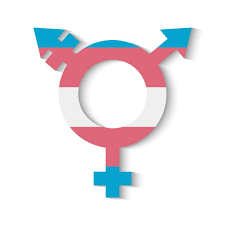Estrogen is one of the most talked-about hormones, often associated with women’s health, but its influence extends far beyond that. It plays a critical role in various bodily functions, ranging from reproductive health to mood regulation. Understanding where estrogen comes from and how it affects our bodies can empower us to manage our health more effectively. So, let’s dive into the gland that produces estrogen and discover its multifaceted roles!
What’s the Deal with Estrogen Anyway?
Estrogen is a vital hormone that primarily regulates the reproductive system, but its impact stretches much further. It’s involved in the development of secondary sexual characteristics, menstrual cycles, and even bone health. Essentially, it acts like a conductor of a symphony, coordinating various bodily functions, including the regulation of cholesterol levels and maintaining skin elasticity.Estradiol And Progesterone Side EffectsTransgender FMale To Female Breasts
Moreover, estrogen is not just one hormone; it comprises a group of hormones, including estradiol, estrone, and estriol. Each type serves different functions and exists in varying levels throughout a person’s life, particularly during puberty, pregnancy, and menopause. This makes understanding estrogen’s role essential for both women and men in navigating their health.
Meet the Ovaries: The Main Estrogen Producers
When it comes to estrogen production, the ovaries are the star players. These almond-shaped glands are located on either side of the uterus and are responsible for the bulk of estrogen in women. Throughout a woman’s reproductive years, the ovaries produce high levels of estradiol, the most potent form of estrogen, particularly during the menstrual cycle. This secretion supports ovulation and prepares the uterus for potential pregnancy.
As women transition into menopause, the ovaries gradually produce less estrogen, leading to a range of symptoms such as hot flashes, mood swings, and vaginal dryness. This decline is a natural part of aging, but it underscores how critical the ovaries are in managing estrogen levels and, consequently, women’s overall health.
The Role of the Adrenal Glands in Estrogen Production
While the ovaries are the primary source of estrogen in women, the adrenal glands also play a role, albeit a smaller one. These triangular-shaped glands sit atop the kidneys and produce a variety of hormones, including adrenaline and cortisol. They also contribute to estrogen production by secreting a weaker form called estrone, especially when the ovaries are no longer producing sufficient estrogen, such as during menopause.
In men, the adrenal glands also produce estrogen, albeit in lesser amounts than their female counterparts. This production highlights the importance of adrenal health in maintaining balanced hormone levels across both sexes. Understanding the function of these glands can shed light on hormonal imbalances that may arise throughout life.
How Estrogen Affects Your Body and Mood
Estrogen is like the mood ring of hormones. It significantly influences how you feel. The hormone is known to boost serotonin production, which is often referred to as the "feel-good" neurotransmitter. This connection between estrogen and mood explains why many women experience mood swings during their menstrual cycles or when transitioning through menopause when estrogen levels fluctuate dramatically.
Physically, estrogen affects various systems, including the cardiovascular and skeletal systems. It helps maintain bone density and regulates cholesterol levels, contributing to heart health. By influencing these critical body functions, estrogen plays a key role in maintaining overall well-being, which is why monitoring its levels is crucial.
Men and Estrogen: Yes, They Have It Too!
While estrogen is often labeled as a "female hormone," it’s essential to recognize that men produce it too. In men, estrogen is primarily produced through the conversion of testosterone in the testes and fat tissue. Even though the levels are much lower than in women, estrogen is crucial for regulating libido, erectile function, and even sperm health.
An imbalance of estrogen in men can lead to various health issues, such as gynecomastia (enlarged breast tissue), mood swings, and infertility. So, the next time you hear about estrogen, don’t just think of women; it’s a vital hormone for men as well!
Conditions That Can Affect Estrogen Levels
Several conditions can disrupt the natural balance of estrogen in the body. In women, polycystic ovary syndrome (PCOS), endometriosis, and menopause can lead to fluctuating or reduced estrogen levels. These conditions can manifest in symptoms like irregular periods, severe cramps, and mood disturbances.
In men, conditions such as obesity, liver disease, or certain tumors can lead to elevated estrogen levels, which can produce unwanted side effects. Understanding these conditions is crucial for both men and women, as they highlight the importance of maintaining hormonal balance for overall health.
Foods and Lifestyle Tips to Balance Estrogen
Diet and lifestyle play significant roles in maintaining balanced estrogen levels. Foods rich in phytoestrogens—like flaxseeds, soy products, and whole grains—can help modulate estrogen levels naturally. Additionally, maintaining a healthy weight through regular exercise is essential, as fat tissue can convert testosterone into estrogen, leading to imbalances.
Moreover, avoiding excessive alcohol and managing stress can further support healthy estrogen levels. Mindfulness practices like yoga and meditation can also be beneficial, as they help reduce stress and promote hormonal balance. Small lifestyle tweaks can significantly contribute to a healthier hormonal landscape.
When to Consult a Doctor About Estrogen Issues
If you suspect an imbalance in your estrogen levels, it’s essential to consult a healthcare provider. Symptoms like severe mood swings, irregular periods, or unexplained weight changes can indicate hormonal issues that need professional attention. A healthcare provider can conduct tests to measure hormone levels and provide tailored recommendations.
Timely intervention is crucial, as untreated hormonal imbalances can lead to long-term health issues, such as osteoporosis or cardiovascular problems. So, if something feels off, don’t hesitate to reach out to a professional for help in navigating your hormonal health.
Understanding what gland produces estrogen and its widespread effects on the body is an empowering piece of knowledge. From the ovaries to the adrenal glands, these hormone-producing structures play vital roles in regulating our health, mood, and overall well-being. By becoming more aware of how estrogen functions and the factors that influence its levels, we can make informed decisions about our health and seek help when necessary. Remember, your hormones matter—so take care of them!


